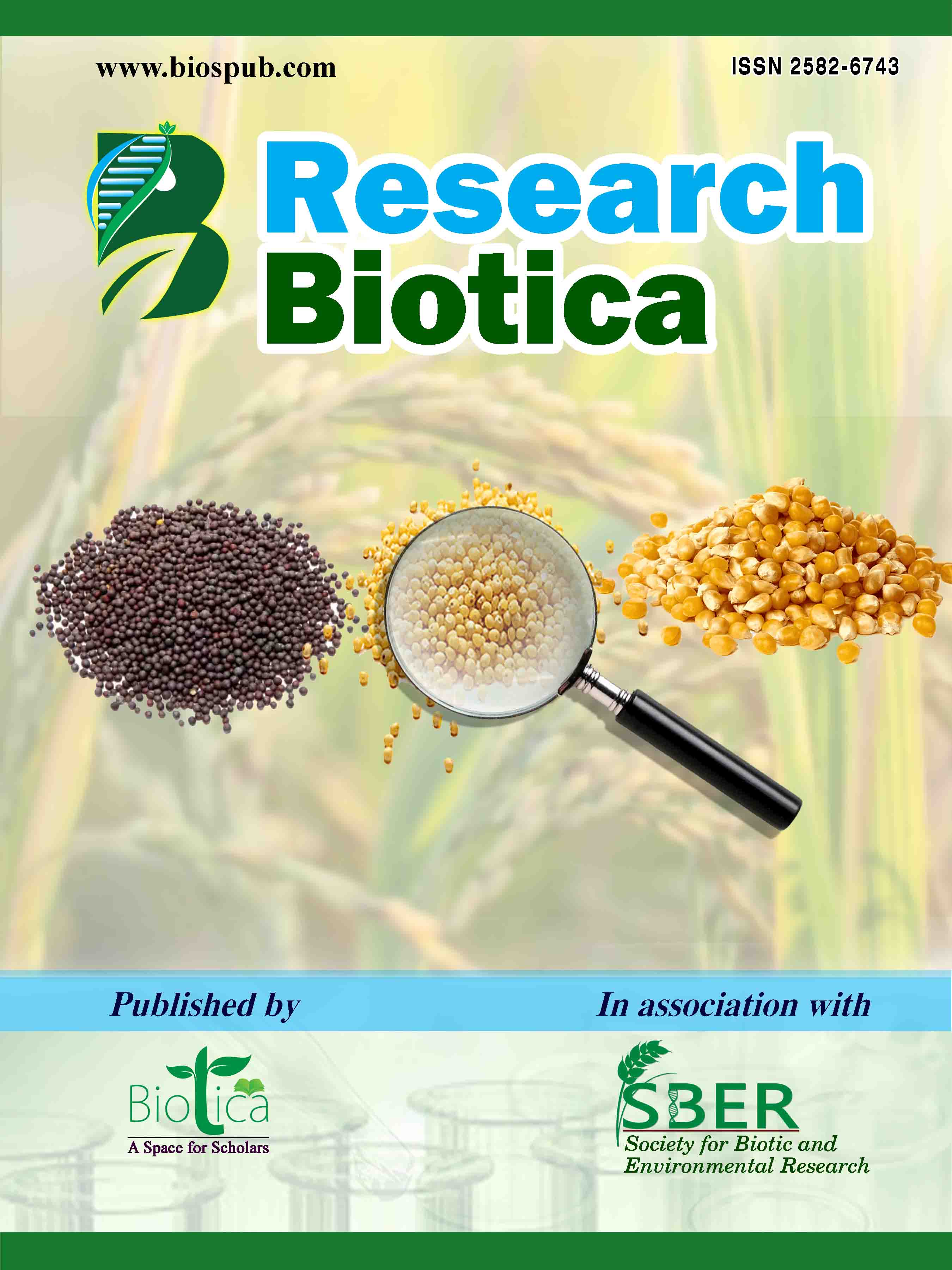Melatonin: Antioxidative Role in Plant Stress Tolerance
Keywords:
Abiotic stress, Antioxidant, Biotic stress, MelatoninAbstract
Melatonin, initially identified as a neurohormone in mammals, has been recognized as a crucial signalling molecule within plants, exerting significant influence over growth, development and the plant's reactions to various environmental stresses. Studies on rice melatonin biosynthesis have highlighted its significance in enhancing plant growth and conferring ability to withstand environmental pressures like drought and salt stress by modulating antioxidant defence mechanisms. Additionally, melatonin serves a crucial function in enhancing plant resilience against varied environmental stressor including drought, salt, heat, cold, heavy metals and light stress. Its multifaceted mechanisms include stabilizing plasma membranes, preserving chloroplast integrity, enhancing photosynthetic rates and reducing reactive oxygen species (ROS) levels. Furthermore, melatonin derivatives contribute to ROS scavenging, enhancing plants' ability to withstand environmental challenges. Melatonin might play an important role in stress response mechanisms with great potential in agriculture and crop improvement strategies.
Downloads
Downloads
Published
How to Cite
Issue
Section
License
Copyright (c) 2024 Biotica Research Today

This work is licensed under a Creative Commons Attribution-NonCommercial-NoDerivatives 4.0 International License.









 |
|